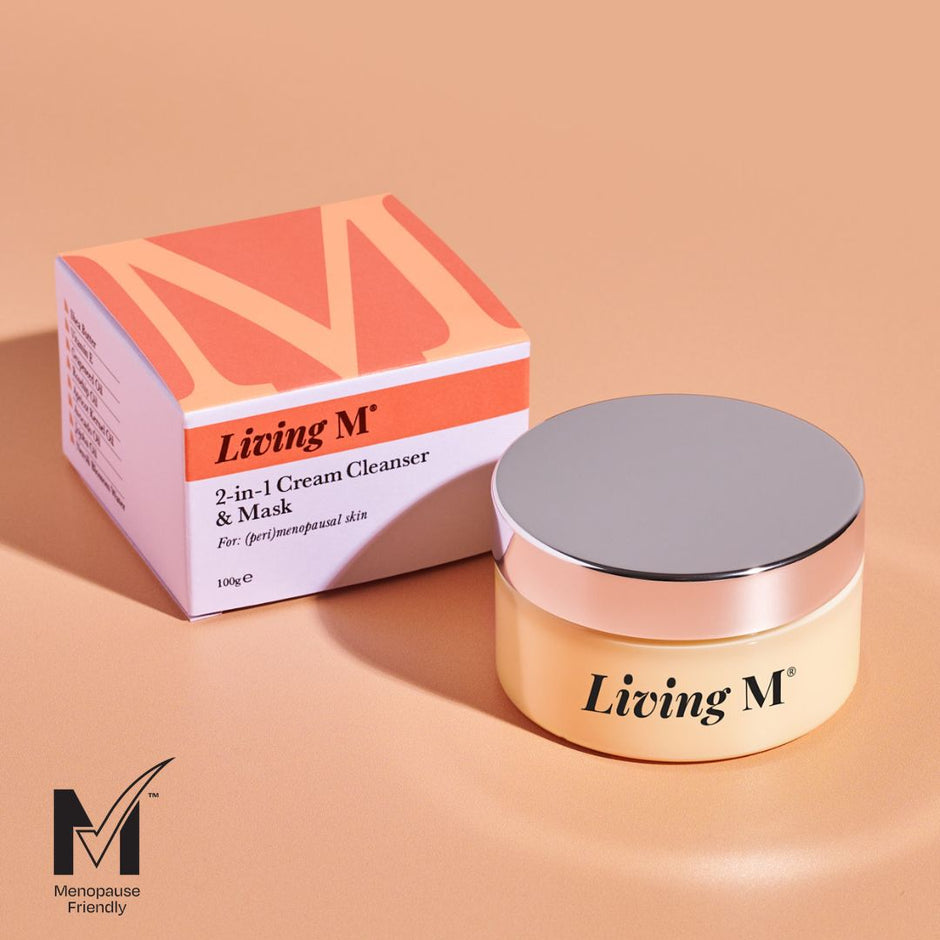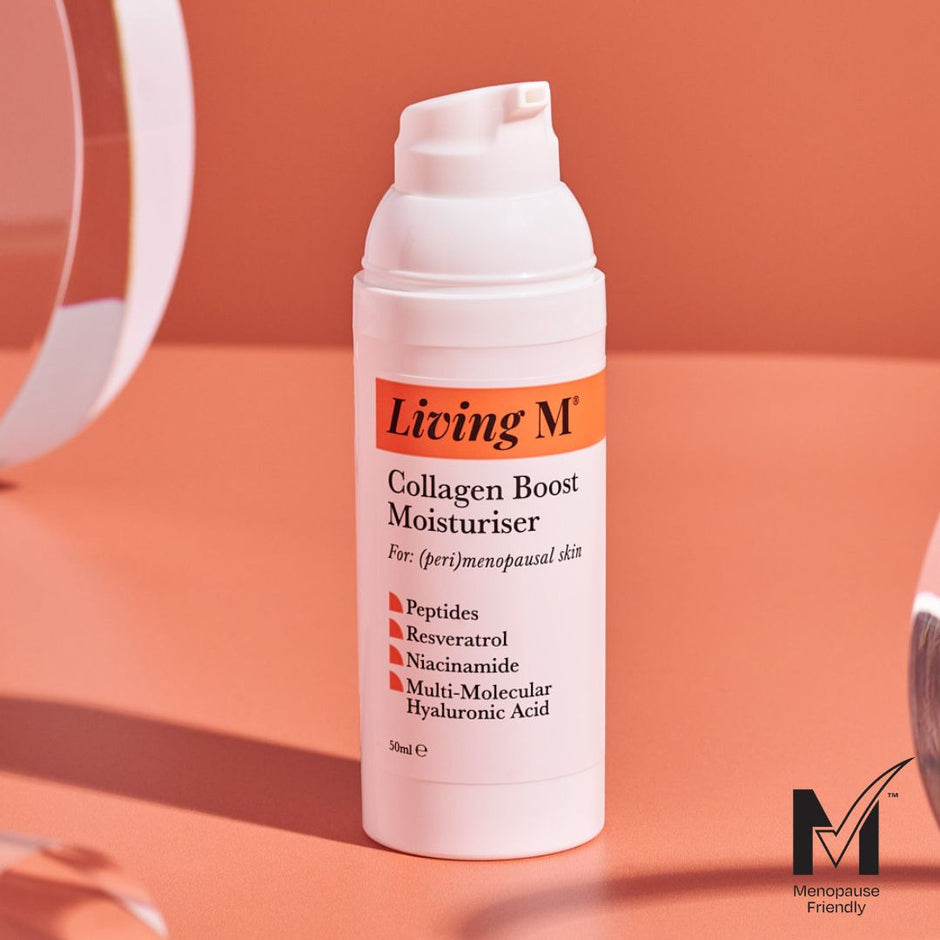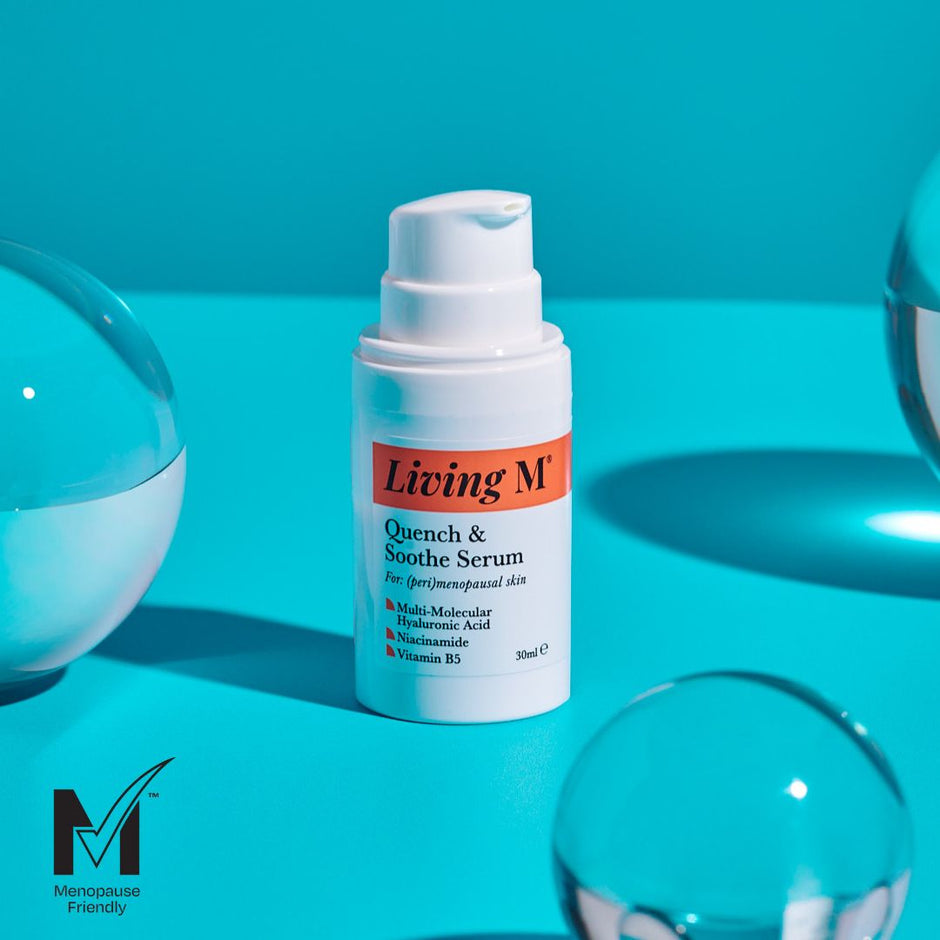Is it time to start using retinol? If you’re perimenopausal or menopausal, you’ve likely noticed big changes to your skin. Dry, dull and sensitive with a loss of radiance are the complaints we hear most often from our community.
Products that have worked well in the past may no longer be giving you the results you want, so it’s time to make a change. There is so much conflicting advice about the best product or ingredients to use, it can be a confusing time. One thing the skincare community can agree on is that retinol is the gold standard ingredient for ageing well.
It can seem a little daunting to add a new ingredient to your regime but it’s unlikely this is going to be one that you will regret. If you want glowing, healthy-looking skin in menopause, you really need to be using a retinol. There is simply no other skincare ingredient that can do as much for your skin as retinol can.
Retinol is a powerful ingredient, but it does come with some well-known side effects, so you need to make sure you choose a product that has been designed for the contradictions of menopausal skin.
WHAT DOES RETINOL DO FOR MENOPAUSAL SKIN?
First of all, what is retinol? Retinol is an umbrella term for compounds derived from vitamin A. These are officially called retinoids. Retinol works in both the outer layer (epidermis) and inner level (dermis) of the skin. It increases the thickness of both layers by increasing cell turnover and stimulating collagen production.
Collagen levels decline as we go through menopause – a scary sounding 30% of collagen in lost in the first five years of menopause. If you aren’t already using retinol, you need to start now as retinol will help stimulate your skin to make more collagen. The result: radiant, smoother, stronger skin.
The list of benefits for menopausal skin is endless.
- reduction in fine lines and wrinkles (we prefer to call them laughter lines)
- speeds up skin cell renewal
- reduces hyperpigmentation
- gently resurfaces skin
- unclogs pores
- boosts collagen production
HOW TO CHOOSE THE BEST RETINOL FOR YOU
With so many retinol products available the choice is vast – serums, creams, different strengths – it can be hard to know where to start. It’s important to remember that not all of these products have been designed with menopausal skin in mind.
It’s well known that retinol side effects include dryness, redness, flaking and peeling during the early stages of use. Because menopausal skin can be even more prone to sensitivity. irritation and dryness, choosing the right formulation is key. It’s really important to pair retinol with nourishing ingredients that support your skin barrier and avoid drying out your skin even more.
Super A Retinol Sleep Cream has been formulated especially for menopausal skin to enjoy all the benefits of retinol whilst minimising the risk of skin irritation. Firstly, we have chosen to use an encapsulated retinol which is released gradually as you sleep. Time release technology reduces the risk of irritation often experienced with retinol use. Nourishing ceramides and multi-molecular hyaluronic acid work to strengthen skin’s natural barrier and deliver deep replenishing hydration to keep your skin looking dewy and radiant.
Our cream formulation with nourishing added ingredients also means you don’t need to buffer your retinol product because we’ve already done it for you. “Buffering” is when you mix retinol with your regular moisturiser to reduce the risk of irritation and dryness, a problem with products not developed specially for menopausal skin.
HOW MUCH RETINOL SHOULD A BEGINNER USE
It’s really important that you take the time for your skin to get used to retinol if you are just starting out. You should only use retinol in the evenings and build up your tolerance gradually. For the first two weeks use one to two times a week on non-consecutive days watching carefully for signs of irritation. Apply to clean, dry skin after cleansing. If your skin is comfortable after a fortnight, you can then start to slowly increase usage over the next two weeks building gradually to use every other night. If you start to see signs of irritation, scale back your usage a bit until your skin resets.
If you are using Super A Retinol Sleep Cream use 1-2 pumps. On the nights you aren’t using Super A Retinol Sleep Cream, use Collagen Boost Moisturiser.
USE RETINOL ONLY AT NIGHT AND USE SPF EVERY DAY
Retinol can make your skin more sensitive to sunlight so it’s essential that you use sunscreen every day. Make sure you do this even in the winter months and even when the sun isn’t shining. Sun protection should be all year round. We recommend choosing a fragrance-free formulation to minimise the risk of skin irritation. Make it a habit and the last step of your skincare regime before applying make-up. Use factor 50 – the one in your foundation or your moisturiser is not enough.
In menopause, a great retinol product is a must if you want radiant, smoother, stronger skin. It’s the gold standard for ageing well. The key is using the right product and building up your tolerance gradually. You’ll be really glad you did.
Living M Super A Retinol Sleep Cream £45 50ml




